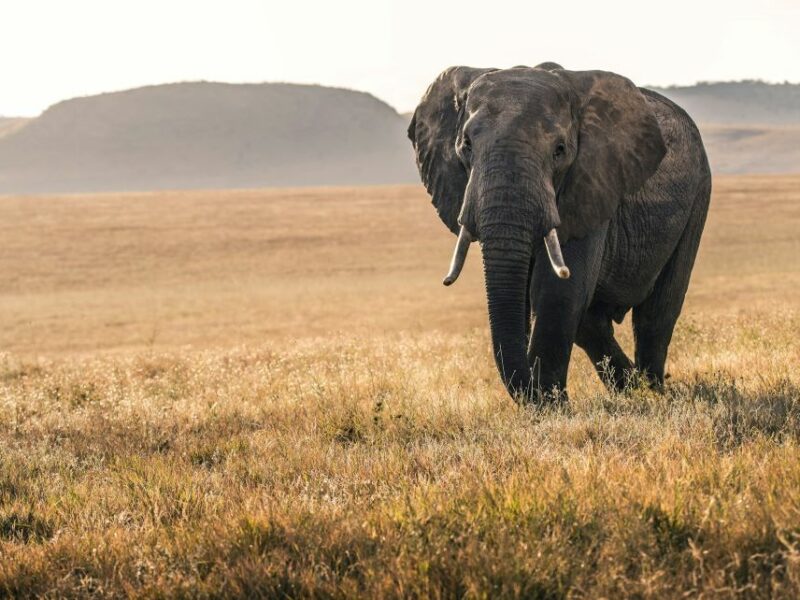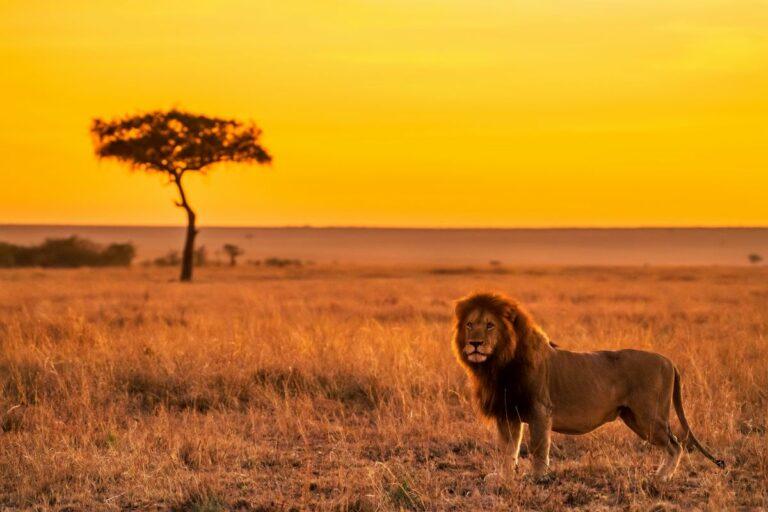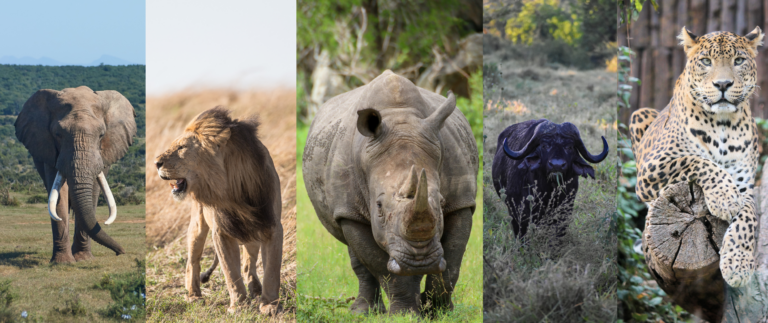Imagine stepping into the vast, untamed landscapes of South Africa, where the thrill of the hunt and the call of the wild merge into an unforgettable experience. Big game hunting here isn’t just about the pursuit; it’s about connecting with nature in its rawest form. The term “Big 5” refers to the lion, leopard, rhinoceros, elephant, and Cape buffalo—each presenting its own unique challenge and allure.
Our guided safaris offer more than just a hunt; they provide an opportunity to understand the intricate balance of Africa’s ecosystems. With seasoned hunters by your side, you’ll navigate the semi-open scrub country, feeling the adrenaline as you track these majestic animals. This isn’t merely a sport; it’s a journey into the heart of Africa, where every moment is steeped in the rich traditions and deep respect for wildlife.
[DYNAMIC-BLOGTABLEOFCONTENT]
Key Takeaways
- Diverse Wildlife and Big Game: South Africa’s big game hunting offers encounters with the “Big 5″—lion, leopard, rhinoceros, elephant, and Cape buffalo—each carrying its own unique challenges and allure.
- Historical Roots: The rich history of big game hunting in South Africa dates back to the 19th century, influenced by European explorers and colonial settlers, evolving into a blend of tradition and modern conservation efforts.
- Conservation Focus: Modern big game hunting practices in South Africa emphasize ethical hunting and conservation, with regulated hunts contributing to wildlife protection and local economies.
- Varied Hunting Grounds: Hunts are conducted in both national parks and private reserves, each providing unique environments and contributing to sustainable wildlife management.
- Economic Contribution: Revenue from big game hunting supports local communities and conservation programs, significantly impacting South Africa’s rural economies and wildlife preservation.
- Ethical Standards: Strict legal regulations and permits ensure sustainable and ethical hunting practices, reinforcing the importance of preserving South Africa’s rich biodiversity.
History Of Big Game Hunting In South Africa
Big game hunting in South Africa has a long, storied history that’s deeply intertwined with the continent’s culture and wildlife. The allure of the Big 5 African game—lion, leopard, rhinoceros, elephant, and Cape buffalo—has drawn adventurers for centuries.
Early Beginnings
The initial impetus for African big game hunting dates back to the 19th century, when European explorers and settlers began to venture into the African wilderness. Driven by both the thrill of the hunt and the desire to collect specimens for scientific research and museums, many of these early hunters documented their journeys, providing invaluable insight into South Africa’s wildlife.
Colonial Influence
During the colonial era, big game hunting in Africa became even more popular. Wealthy Europeans and Americans traveled to South Africa for African hunting safaris, often led by local guides who knew the land intimately. Lion hunting in Africa, along with elephant hunts and buffalo hunts, were seen as ultimate tests of courage and skill. These expeditions contributed to the romanticized notion of the African hunt, something that persists even today.
Conservation Efforts
As the 20th century progressed, concerns over wildlife conservation began to emerge. Unregulated hunting had led to dwindling populations of several iconic species. In response, South Africa implemented stringent regulations and established game reserves to protect its wildlife while continuing to allow controlled, sustainable hunting. These efforts have been instrumental in preserving the Big 5, ensuring that future generations can also enjoy Africa big game hunts.
Modern Hunting Practices
Today, hunting in South Africa adheres to internationally recognized guidelines to ensure ethical practices. Game Hunting Safaris and other outfitters emphasize conservation, highlighting the role of regulated hunting in supporting local economies and protecting wildlife. Hunting is now seen not only as a pursuit of adventure but as a means of contributing to the larger conservation effort.
Technological Advancements
The modern era has also brought technological advancements to African hunting safaris. From high-powered rifles to better communication tools, today’s hunts are safer and more strategic. Yet, the essence remains the same—the thrill of tracking and hunting iconic species like the leopard or Cape buffalo in their natural habitat.
A Legacy Continued
Big game hunting’s legacy in South Africa continues through organizations and individuals dedicated to preserving this unique experience. Whether it’s rhino hunts in protected game farms or buffalo hunts in semi-open scrub country, the spirit of adventure and respect for nature live on.
For more insights into the intricate balance of tradition and conservation in South African big game hunting, visit Game Hunting Safaris.

Types Of Big Game Animals
Big game hunting in South Africa presents some of the most thrilling adventures. Let’s explore these magnificent creatures.
The Big Five
The Big Five consists of the African Elephant, Cape Buffalo, Leopard, Lion, and Rhinoceros. These animals, known for their size and strength, provide unparalleled experiences in African big game hunting.
- African Elephant: Considered the largest land animal, elephant hunts involve extensive tracking for the elusive “tusker.” The challenge lies in their unpredictable behavior and sheer size.
- Cape Buffalo: Often referred to as “dagga boys” when older males, buffaloes demand caution due to their notorious aggressiveness. Buffalo hunts offer intense adrenaline as they tend to turn the tables on hunters.
- Leopard: These elusive predators require hunts over bait. Patience and strategy are vital since leopards are adept at evading detection.
- Lion: Known as the king of the jungle, lion hunting in Africa is a blend of patience and excitement. Often conducted over bait, these hunts are for those who seek the ultimate challenge.
- Rhinoceros: With their massive size and tough hide, rhinoceros hunts are highly regulated, emphasizing conservation. Each encounter underscores the importance of preserving these majestic creatures.
Other Noteworthy Species
Beyond the Big Five, several other species offer remarkable experiences for enthusiasts on African hunting safaris.
- Hippopotamus: Despite their seemingly benign appearance, hippos are one of Africa’s most dangerous animals, often challenging hunters with their territorial nature.
- Crocodile: Crocodile hunts require sharp shooting skills and a keen eye. These amphibious reptiles add to the list of the Dangerous 7, providing unique challenges in game hunting safaris.
- Plains Game: South Africa also offers opportunities for hunting other iconic species like kudu, impala, and springbok, each contributing to the rich biodiversity of the region.
Legal Regulations And Permits
Strict legal regulations govern big game hunting in South Africa, ensuring sustainable practices and ethical standards. Compliance with these regulations is crucial for preserving wildlife populations and maintaining ecological balance.
Government Guidelines
The South African government mandates permits for hunting all species, requiring hunters to apply for specific permissions based on the target animal. Hunting the big 5 African game (Elephant, Cape Buffalo, Leopard, Lion, Rhinoceros) involves adhering to rigorous policies. For instance, rhino hunts are highly controlled to prevent poaching, and permits are limited. Hunters must hold a legal permit, obtained through provincial wildlife authorities, detailing the allowed species, hunting areas, and period. Licenses aren’t transferrable and must be renewed for each game hunting safari. Non-residents need to arrange permits via local outfitters, simplifying the complex process.
Ethical Hunting Practices
Ethical hunting practices are paramount in big game hunting in Africa, ensuring respect for the animals and ecosystems. Hunters follow guidelines like the “fair chase” principle, which prohibits the use of vehicles for chasing or cornering animals. This principle promotes skillful and responsible hunting. Using appropriate calibers and ensuring swift, humane kills is part of these practices, reducing the animal’s suffering. For example, harvesting a Cape Buffalo requires accuracy due to its tough hide and robust build. Additionally, hunting groups and safari organizers often contribute financially to conservation efforts, reinvesting part of the hunting proceeds back into wildlife preservation.

Economic Impact And Conservation Efforts
Big game hunting in South Africa contributes significantly to both the economy and wildlife conservation. The funds generated support local communities and various conservation initiatives, making it a multifaceted activity with far-reaching effects.
Revenue Generation
Revenue from big game hunting in Africa comes from hunting licenses, permits, tourism, and services provided by Game Hunting Safaris. This income supports thousands of jobs, from guides and trackers to hospitality staff. According to the Professional Hunters’ Association of South Africa (PHASA), hunting in South Africa generates approximately $341 million annually, positively affecting rural economies.
Private reserves like Sabi Sands and Makalali charge premium fees for exclusive African hunting safaris, targeting hunters seeking the Big 5 African game. These areas invest heavily in maintaining high standards and ethical practices. Additionally, international tourists often extend their stays, contributing further to local economies through spending on accommodations, meals, and other activities.
Conservation Programs
Conservation has become a cornerstone of African big game hunting. The funds from hunting permits and fees are channeled into wildlife management programs. Many reserves implement anti-poaching measures to protect vulnerable species. For instance, the revenues from African cape buffalo hunts help fund anti-poaching units and habitat restoration.
National parks like Kruger and Hluhluwe-Imfolozi utilize part of their hunting fees to support endangered species programs. Collaborating with organizations like the World Wildlife Fund (WWF), these parks ensure the survival of species like the rhinoceros, elephant, and lion through meticulous management plans.
Private reserves also play a pivotal role. By maintaining controlled hunting environments, they help balance wildlife populations. Sustainable practices ensure that hunting quotas are strictly adhered to, preventing overhunting and ensuring the long-term viability of game species.
Big game hunting serves a dual purpose: it provides a unique adventure for hunters while significantly contributing to conservation and economic sustainability. For more information, visit Game Hunting Safaris.

Conclusion
Big game hunting in South Africa is more than just an adventurous pursuit; it’s a critical component of conservation and economic sustainability. By adhering to strict regulations and ethical guidelines, we ensure that hunting contributes positively to wildlife preservation and local communities. Revenue from hunting licenses and tourism bolsters conservation efforts and supports the livelihoods of those in surrounding areas.
Collaborations between national parks, private reserves, and global organizations help protect endangered species and maintain biodiversity. Through sustainable hunting practices, we can continue to enjoy the thrill of the hunt while playing a crucial role in preserving South Africa’s rich natural heritage.
Frequently Asked Questions
What is the history of big game hunting in South Africa?
Big game hunting in South Africa has evolved from being a colonial sport to a conservation-focused activity. Over the years, it has shifted towards sustainable practices that support wildlife management and conservation efforts.
What legal regulations govern big game hunting in South Africa?
Big game hunting in South Africa is regulated by strict laws and licensing requirements. These regulations ensure that hunting practices are ethical and sustainable, contributing positively to wildlife conservation.
Where are the popular big game hunting destinations in South Africa?
Popular big game hunting destinations include Kruger National Park and private reserves such as Sabi Sands Game Reserve. These areas offer well-managed, controlled hunting experiences.
How does big game hunting impact South Africa’s economy?
Big game hunting significantly contributes to South Africa’s economy through revenue generated from hunting licenses and tourism. This income supports local communities and funds conservation initiatives.
What role do private reserves play in big game hunting?
Private reserves invest in maintaining high standards and ethical practices for big game hunting. They play a crucial role in conservation efforts by funding and supporting wildlife preservation programs.
How does big game hunting support conservation efforts?
Revenue from hunting permits funds various conservation programs, helping to protect vulnerable species and support wildlife management. Sustainable hunting practices also ensure the survival of endangered species.
How do national parks and private reserves collaborate with conservation organizations?
National parks and private reserves often work with organizations like the World Wildlife Fund to implement conservation strategies. This collaboration helps to protect endangered species and ensure sustainable wildlife management.
What are the ethical considerations in big game hunting?
Ethical considerations include ensuring the humane treatment of animals, respecting wildlife populations, and adhering to legal and sustainability guidelines. Responsible hunting practices are crucial for maintaining ecological balance.
Can big game hunting be considered a form of ecotourism?
Yes, when managed sustainably and ethically, big game hunting can be considered a form of ecotourism. It provides educational experiences for hunters while supporting conservation and economic sustainability.
